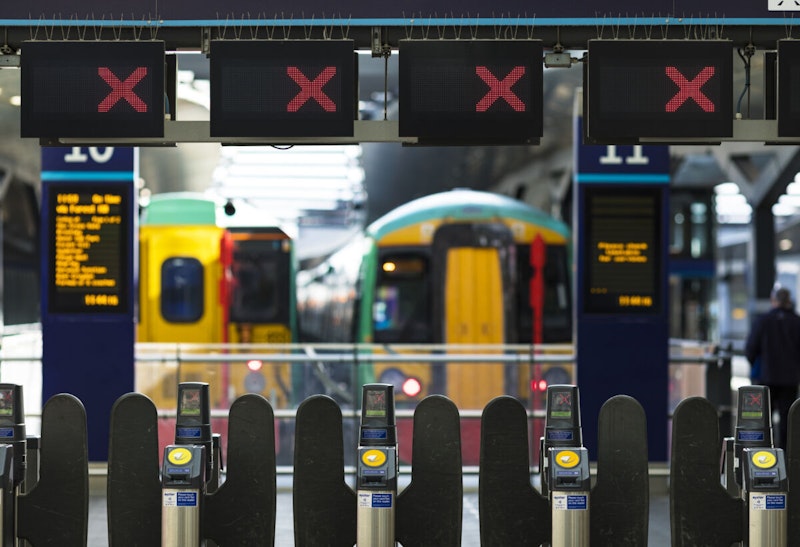In the News
Sociology in the News: If strikes are not the answer, then what is?

23rd September 2022
With the cost of living soaring and wages falling further behind, the RMT boss Mick Lynch has become the face of resistance. He talks about work and dignity, the current rail dispute, and of course, the stereotyping of working-class people.
Mick Lynch is the leader of the RMT - National Union of Rail, Maritime and Transport Workers, which represents 80,000 members, and is currently in the media spotlight as the British rail strikes enter their third month.
He embodies the stereotype of a trade unionist - white, male, bald, approaching retirement - despite representing a very diverse cross-section of the population in his work.
In this article Lynch talks about his scorn for the media culture that focuses on people having their day ruined by a rail strike, but doesn't bother to cover what the strikes are actually for (which for information is a real-terms pay cut over the next two years, plus the loss of one‑third of frontline maintenance roles and half of scheduled maintenance work).
Lynch is very quick to point out that the traditional diatribe of striking transport workers stopping hard working members of the public getting to work, and that transport workers are well paid anyway, is not being brought by the general public anymore, and that 70% of people support the demand for a pay rise that takes into account the rising cost of living. The traditional centre-left argument that the strikes are bad, despite the demands being fair, has also lost support, with only 18% of the public opposed to the strikes.
Tory MPs will argue that railway workers have good working conditions and pay - but people are no longer listening - Lynch stated at the launch rally last week for the cost of living campaign Enough Is Enough - “Our message must be this … the working class is back.... we refuse to be meek, we refuse to be humble, we refuse to wait for politicians and policy-writers – and we refuse to be poor any more.”

This is a really interesting interview that encapsulates the idea of false class consciousness of the working classes - particularly with this extract...
Then there is the fact we are two generations on from Thatcher. A lot of working people aren’t old enough to remember the assumptions of the mid-80s, when “you’d expect a level of dignity. You respected people for being workers and you had to respect workers’ organisations … People have been told that they should be grateful for having a job, grateful for earning a living. They’ve been told that if you can’t earn enough in one job, to go and get a second job.”
And also draws attention to the fact that working class people on low incomes often feel they have no choice at all but to just accept their lot, through fear of losing their jobs and not having an income...
In the care sector, for example, you will find workers paid the minimum wage in 15-minute segments and expected to provide the car and fuel to get them from one appointment to the next – yet they don’t strike, “because it affects people who need their care”. Plus, of course, poverty wages strip away the option of forgoing pay.
And of course it highlights just how important unions are to the rights of the working classes - to enable them to work in a job that treats them with dignity and they can afford to pay their bills with.
Read the full article here - https://www.theguardian.com/uk...
You might also like
Education for Refugees
19th February 2018
Poverty in the USA
9th October 2018
Presenteeism
23rd April 2019
Education and Social Class Identity
Topic Videos
Netflix: Why Women Are Paid Less
19th June 2020
Covid-19: New four-week lockdown comes into force in England
9th November 2020

TV recommendation - Broke: Britain's Debt Emergency (Dispatches)
23rd September 2022
Daily Email Updates
Subscribe to our daily digest and get the day’s content delivered fresh to your inbox every morning at 7am.
Signup for emails